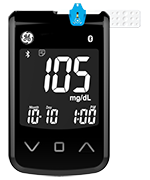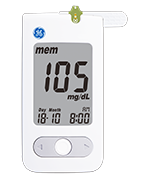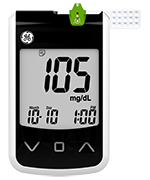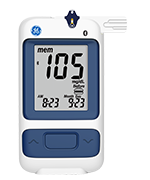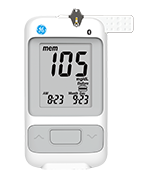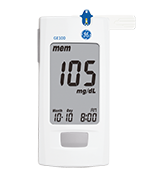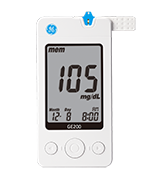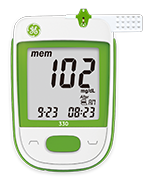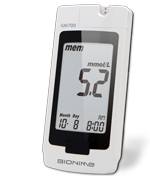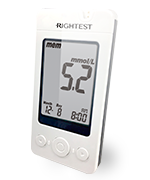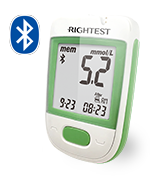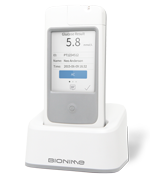The Importance of Sleep
The Importance of Sleep
Sleep is essential for survival. Going without good sleep for a long period of time can cause problems, both mental and physical. Even just one night of poor sleep can really impact the next day. Most of us are aware that we ought to be getting more shut eye but, with our busy lives and the digital world keeping us stimulated and looking at screens late into the night, many of us don’t. In 2016, the US Centers for Disease Control and Prevention found that 1 in 3 American adults don’t get enough sleep1. With poor sleep being linked to chronic health conditions, including type 2 diabetes, getting a good night’s rest as often as possible ought to be a real priority.

Sleep Helps With Diabetes Management
Maintaining a healthy weight is one of the keys for managing diabetes. Believe it or not, sleep can help with this! A good night’s sleep can help you to manage your appetite. Low quality sleep affects our appetite by altering the neurotransmitters which promote hunger and help us feel full. People who are sleep deprived feel their bodies signalling them to consume more calories2. They also tend to seek an energy boost and are more likely to choose foods which are higher in calories and carbohydrates. Consuming more calories than they need leads to a weight increase.3.
Exercise is another part of effective diabetes management. Unfortunately, feeling tired makes it less likely that we will feel like getting up and getting a sweat on. Sleeping well and feeling your best also makes it easier to tackle on other goals you might have and even makes regular glucose monitoring feel more manageable.
How To Tell If You're Sleeping Poorly
You’ll probably know if you’re not sleeping well. It feels hard to get up, your body and mind feel strained and you might find yourself reaching for multiple cups of coffee throughout the day. It can be hard to focus on the things that need to be done and many people feel more emotional and irritable too.
Other indicators of poor-quality sleep include taking more than 45 minutes to fall asleep after getting into bed, waking up more than 3 times in a single night, spending less than 75% of the time in bed asleep or needing to take multiple naps throughout the day.
Your appetite is likely to be affected too. You might not really feel like eating or be tempted to eat sugary items to give us a quick boost. This can be especially problematic for someone with diabetes as it can lead to lows and spikes in blood glucose levels.
Tips to Improve Your Sleep
Generally speaking, adults should be sleeping for 7 to 9 hours a night. Aiming for 8 hours is a great place to start. There are some simple steps you can take if you think you’re not getting enough sleep. One of the most important, as espoused by sleep scientist Matthew Walker [4], is to get up at the same time every day, no matter whether it’s a weekday or the weekend. This lets your body stay in rhythm and helps you to feel sleepy and wake up at a consistent time.
You can also design a routine to help you wind down about an hour before bed. Do something relaxing and avoid looking at screens. Try mimicking the sun going down by switching off half the lights in your house or dimming them.
Listen to your body and give yourself the sleep you deserve. Remember, good-quality sleep brings many benefits. Improved health, better memory, more stable emotions and more!
By Joel Kingsman
Sources |
- [1] - Centers For Disease Control and Prevention. (2016, February 18). 1 in 3 adults don’t get enough sleep. Retrieved: February 3 2021 from https://www.cdc.gov/media/releases/2016/p0215-enough-sleep.html
- [2] - Spiegel K, Tasali E, Penev P, Van Cauter E. Brief communication: Sleep curtailment in healthy young men is associated with decreased leptin levels, elevated ghrelin levels, and increased hunger and appetite. Ann Intern Med. 2004 Dec 7;141(11):846-50. doi: 10.7326/0003-4819-141-11-200412070-00008. PMID: 15583226. https://pubmed.ncbi.nlm.nih.gov/15583226/
- [3] - Greer SM, Goldstein AN, Walker MP. The impact of sleep deprivation on food desire in the human brain. Nat Commun. 2013;4:2259. doi: 10.1038/ncomms3259. PMID: 23922121; PMCID: PMC3763921. https://www.ncbi.nlm.nih.gov/pmc/articles/PMC3763921/
- [4] - Matthew Walker - Sleep is your superpower. TED. https://www.youtube.com/watch?v=5MuIMqhT8DM&ab_channel=TED


